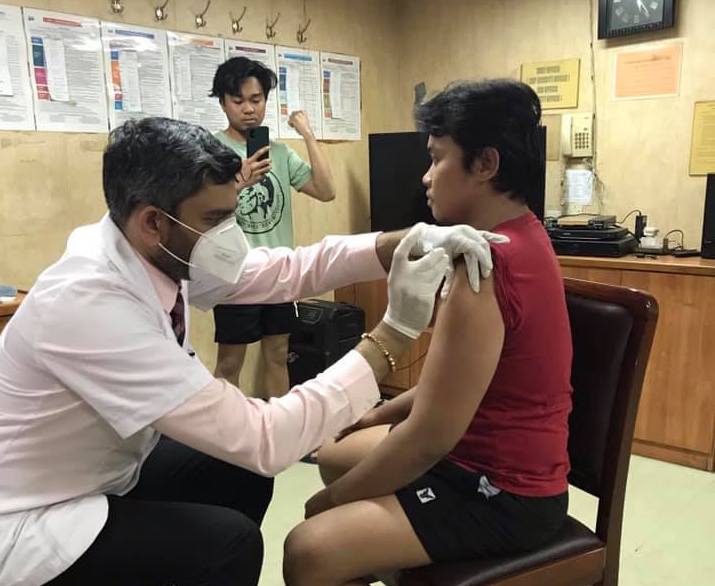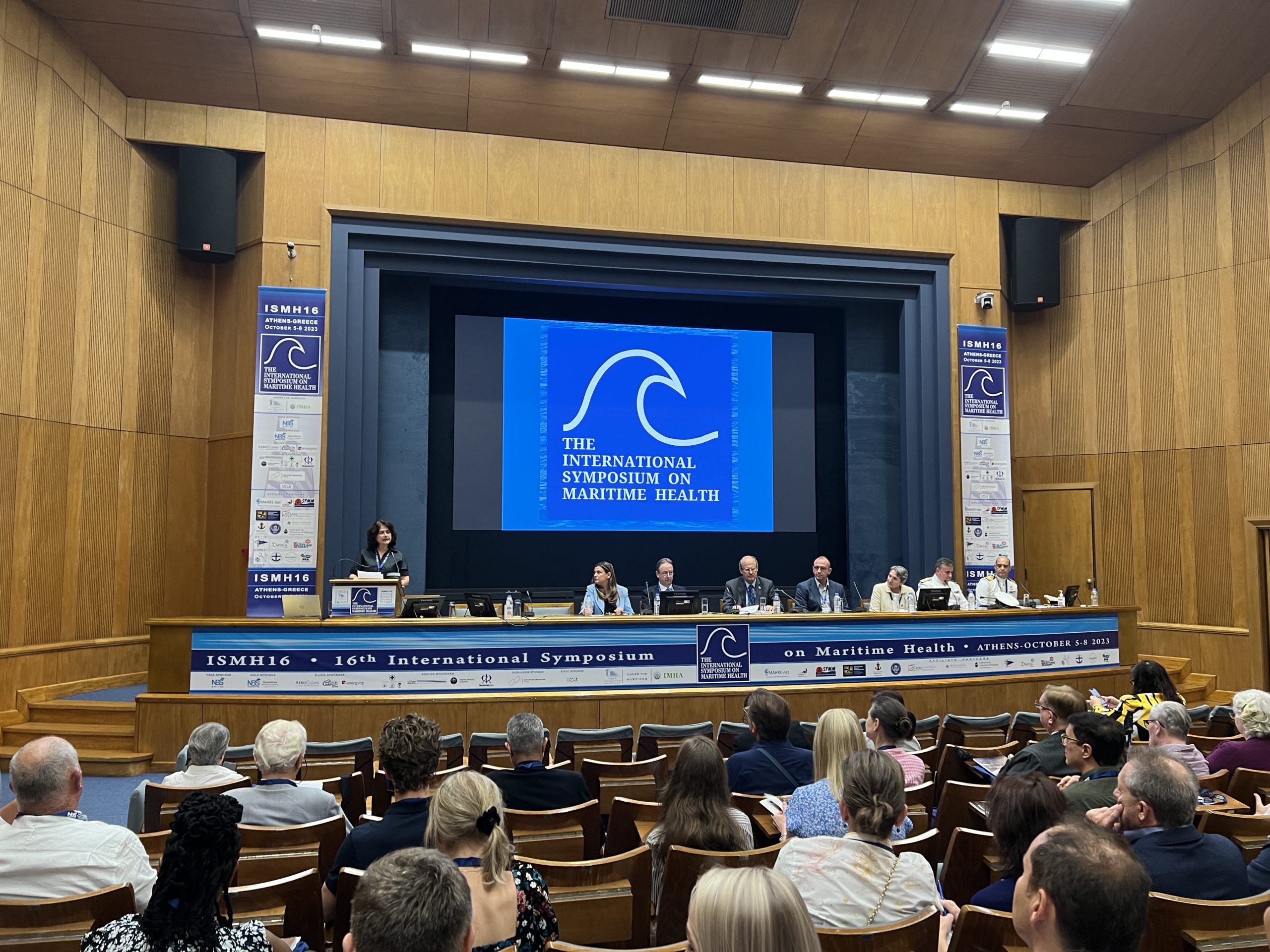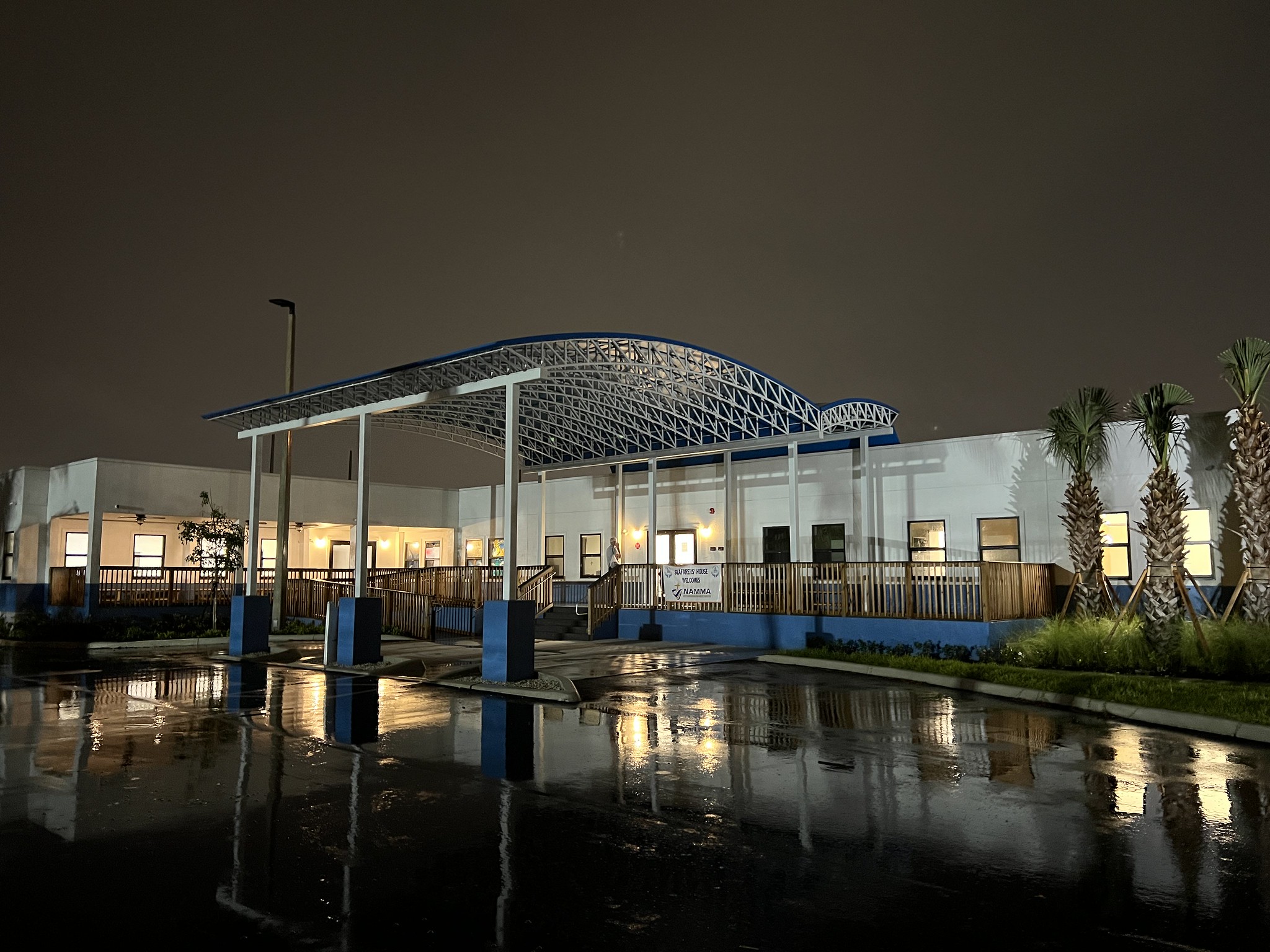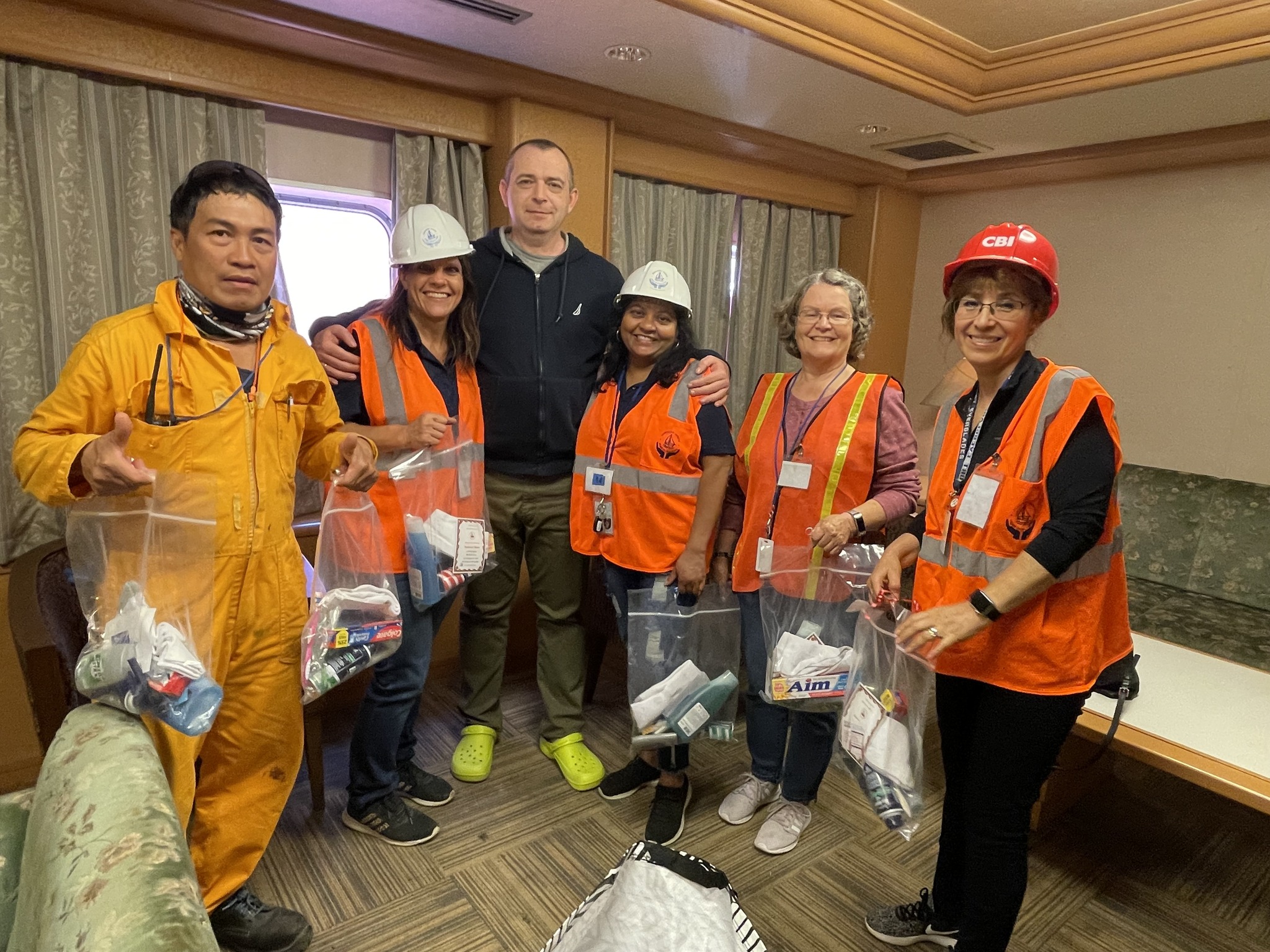by Susan Huppert, NAMMA
Understanding the significance of seafarers as key in a global market is increasing as new organizations join efforts to vaccinate the world-wide workers. Approximately 1,700,000 seafarers, on internationally trading merchant ships have struggled through the pandemic for access to vaccines in various ports throughout the world, due in part to restricted shore leaves.
Recently, the State of Florida established a COVID-19 vaccine site through the Department of Emergency Management. By using a cruise terminal at the Port of Tampa they are reaching port workers. Included in the declaration is “those who work on ships” according to Tampa Port Ministries Seafarers’ Center Director/Chaplain, Steve Finnesy.
Beginning in mid-May vaccine opportunities became available.
“For six weeks we were able to take nurses on board vessels to vaccinate crew members,” said Finnesy. “We were also able to extend the program to Port Manatee,” their neighbor to the south on Tampa Bay.
The State program enabled vaccination of 434 seafarers at Tampa from mid-May to mid-June.
Developing COVID vaccination programs has raised awareness of the seafaring community in new arenas.
Establishing a clinic within the port has been a three-year project for Finnesy. While still in process, the international seafarers’ need to get vaccinated has created an opportunity with the University of Southern Florida’s College of Nursing. Following the end of the State program, an active partnership began with the nursing students.
“We approached them, and they were looking for a way to engage with the seafarers specifically,” said Finnesy. The timing was perfect.”
The nurses arrive at the center daily and are transported to ships. More than 172 crew members have been vaccinated through this process, so far. Direct contact with seafarers is having a positive impact on college students and volunteers, according to Eric White, Inspector for the International Transport Workers’ Federation. Raising awareness among the general population about the seafarers’ role in the global supply chain is important.
Port Manatee staff transport seafarers to locations outside the port for vaccinations including Walmart pharmacy, Winn-Dixie grocery chain pharmacy, Walgreens and the Ellenton Discount Pharmacy. By May 10, 296 seafarers had been vaccinated. Anchor House chaplain, Alan Howe is alert to any possible avenue of support for the seafarers.
The opportunity to participate in vaccines for seafarers at Port Manatee inspired one pharmacist near the port. When Howe, transported a seafarer to the pharmacy, he asked Dr. Ken Patel, if he would like to help with additional vaccines for seafarers at the port.
“I told him I would love to,” said Patel. “It is a great opportunity to help them. I was very satisfied at a personal level by seeing them excited after getting vaccines. Now they can be more secure and free earlier without quarantine. Plus for some seafarers, vaccines are hard to find in their own country due to high demand.”
“Supplying access to vaccines for those onboard helps us with agents and the entire maritime community,” said Finnesy. People see that seafarer ministries have a valid place in the port community. It is adding value as a whole.”
Finnesy also works closely with ITF to hurdle barriers to service. The partnership with the seafarer centers helps work around potential challenges.
“Anytime you can get more healthcare toward seafarers is a good thing,” said White.
White alerts seafarers’ centers of inbound ships that request vaccines, enabling efficiency in organizing access. White’s ability to coordinate with ship owners who may be unsure about the vaccination programs also helps. He refers others to https://namma.org/vaccines/ for valuable information. Most often, a lack of information can be eliminated. White provides clarity when seafarers, captains or ship owners are not convinced by the seafarers’ center staff of the value available to them. The current programs are free at Tampa and Port Manatee.
“We’ve had positive experiences with our tag-team approach, perhaps because an ITF inspector is more trusted. We are there for the crew exclusively and our track record is a pretty big statement,” said White.
Timing is a challenge. Ships docking on weekends and limited staffing as escorts still exists.
“I would say I am feeling more satisfied by helping seafarers, as I know that now I am helping on a global level to end this pandemic,” said Patel.
The sentiment at sea is similar according to an email Finnesy received from a ship captain after his visit to the Port of Tampa where his crew was vaccinated.
“It’s really important for crew members,” he wrote. “It is going to relieve their daily anxiety as they travel around the world.”
Image: Facebook post of Alan Howe, Director Anchor House, Port Manatee





